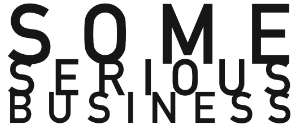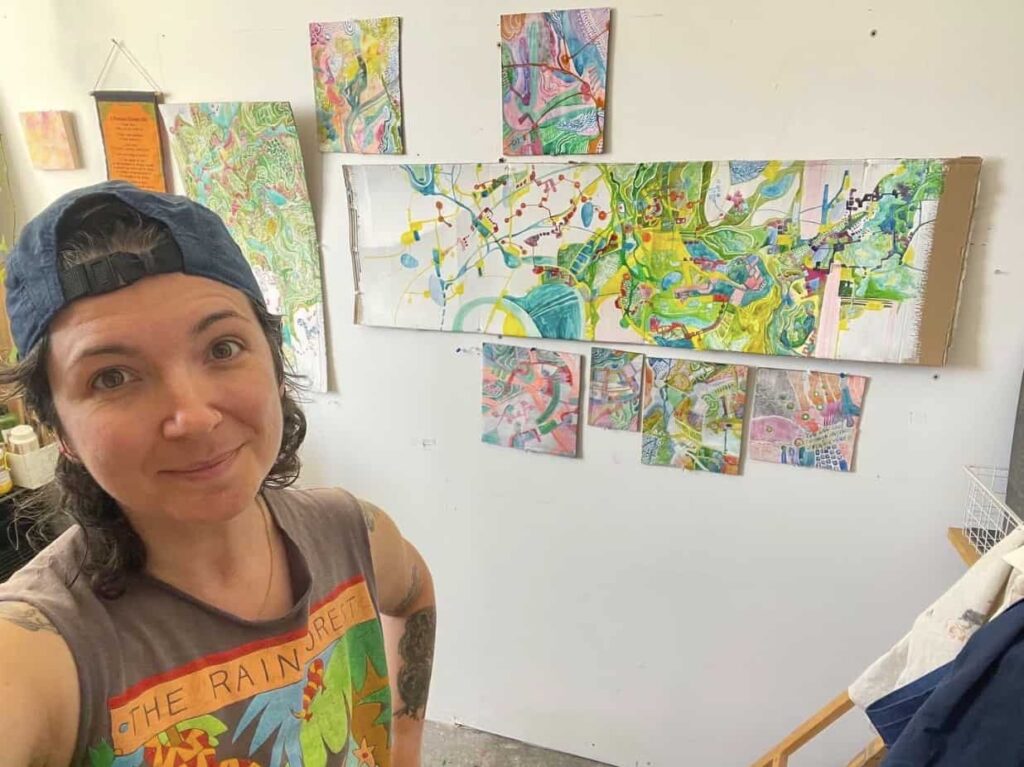SSB Away Welcomes Elæ Moss to the Mesa
Shifting perspectives and opening space to dream are the hallmarks of the SSB Away experience. Elæ Moss (they/them) is a multimodal artist-researcher, curator, and facilitator designing speculative human, institutional and ecological systems through the iteration of open-source strategies for social change.
Please enjoy their in-depth video, audio, and written responses to SSB’s #FiftyQuestions. They say of this process: I have often found my ways of processing and documenting are best served by getting away from screen and the act of writing. I’ve responded to some questions in text, and some in video and audio form. Done in three sittings, there’s some overlap—it’s interesting to be my own audience and hear the ways reflections dovetail and diverge in different moments.
Questions considered in video:
#3 – What has been the most significant challenge you’ve faced that you overcame to continue your art practice?
#6 – In thinking of the lulls and gaps or lost places in your practice over the years, who or what has re-energized you?
#5 – What one sentence do you hope describes how your art practice will be recorded in history, and why?
#36 – Who or what do you feel is most invisible to others in your practice?
#37 – How do you feel most often misunderstood or misperceived, either as an artist or in your work itself?
#50 – What would be the most thrilling moment or situation in timespace to find your art being enjoyed?
Questions considered in audio:
#49 – If you could be anything besides an artist in human form, what would you like to be?
#44 – What makes you most likely to shut down or go into dormancy as an artist?
#26 – Is destruction a positive phenomenon for you?
#18 – Can you recall your first memory of bliss in self-expression?
#13 – Do you have a relationship with the distant future – in other words, are you making artwork that bears a message or impact for coming generations?
#15 – What surprises you most about what you are doing right now in your practice? If the nine-year-old you could see you right now, what do you think they would think?
#48 – Are you more interested in the universal or the individual? How important is it to you whether you express yourself as a unique person, or rather add your voice to a collective conversation?
#28 – When does Joy tend to visit you?
#32 – How has your years of artmaking affected or influenced your sense of self?
I’ve often thought about how in particular a drawing practice – and being encouraged to draw as a child – in fact is the beginning of me learning to really see. In turn, becoming familiar with and then skilled in a variety of materials in both representational and nonrepresentational ways has remained a constant space of critical observation, iteration, and application – of learning, with the senses, really – since I was a child. This impacts everything else I do in countless ways. When practiced seriously, frequently, and with real curiosity, this process of embodied, sensory inquiry bleeds into every other way we receive information, perceive the world and each other, and know-how and who we are. This experience, however, has sometimes seemed anathema to the language of or socio-cultural role-play of the Artist, which has sometimes been a struggle in terms of establishing and understanding self-hood (and/or, the abandonment of it, which in many ways I’m more interested in) – luckily I feel like I’ve come full circle to a place where I’m less interested in socially legible roles, and am more comfortable inhabiting what we often call “art” but which is maybe, just, learning to Human fully.
#31 – If you could amplify a specific sense, what would it be? If you could minimize a specific sense, what would it be?
This feels related to the above – I love this prompt because I think a lot about our sensory and somatic awareness…but to be fair, this fascination comes from being a super-sensor, so my senses are already highly amplified. I find sound, light, smell, touch all extremely triggering at times, but I also appreciate this amplification at other times. I wish I could hone it, so that I could use it with intention. Smell is the hardest to mask or avoid – so it would probably be my ‘minimize’ choice, but not when I’m at the garden with my face in lilacs, and not when eating (and smelling) my favorite foods. I’d love to hear in a way that allows me to pick up the communications of animals, plants, and mushrooms – but I am inclined to say this might be more a factor of attention…? Also: I’m working on it.
#35 – If you could create a new public institution for your field, what would its mission be?
Haha, for every question I’m like, “what’s the ‘self’?” “what’s a ‘field’”? But then again that’s very much how my practice exists in the world, so this should come as no surprise! I’ve been driven by the Buckminster Fuller quote about building new models to make the old, broken ones obsolete, (rather than trying to fix them) for more than two decades and this is related to that goal: my speculative solidarity work explicitly envisions and seeks to offer scalable infrastructures for a range of possible futures. When I make this work I’m not thinking, “oh, I’m making art,” but rather, accepting that creative/”art” spaces and platforms are often the fastest and most plastic to pose these sorts of experiments (especially in late capitalism). So I think I’d see my field more as, “assemblage of humans dedicated to survival.” However, I think the “arts” is and will be served by infrastructures that, for one, don’t posit a difference between administrator and maker / doer – an already erroneous and counterproductive division of labor and power. They will also focus on what arts and creativity do and contain – both for participant and audience – and move away from invented, illusory “value” assessments and hoarding mentality. I’ve worked on modeling and iterating something like this, in fact, focused on access and archive, through The Operating System and Liminal Lab over the last decade. It’s tough, because people both theoretically “want” but in practice can still feel threatened by a truly new system that asks them to take risks vis-a-vis old power and “value” structures to make it work.
#43: What is your relationship to your audience, real or imaginary?
Over the years I’ve told both students and the artists or writers whose work I’ve helped produce to consider a range of scenarios with whatever they’re doing or documenting, whether or not there’s any way of knowing who’ll ever see or read it: to consider the known audience, the possible audience, and the desired audience. Even the work we make “privately,” unless destroyed, ultimately does have the potential to be seen, especially in an archival setting. (I wrote about this at length in my piece for Matters of Feminist Practice, on “Documentation” for anyone interested.) So for me I’m often thinking about the future potential of the work I’m doing, even if it doesn’t currently have an audience – which is part of why I believe it’s so important to create personal documentation and framing language around your work, so that it is less likely to get co-opted into someone else’s story. But I also really like to make work that’s site and audience specific, and tailor the questions I’m asking to different sets of data and/or potential viewers and readers. Translating the same research into materials / installation / texts for kids, or “suits” or musicians or elders or folks from different cultures is a vitally important exercise – in this way I suppose I’ve always been my own curator / editor / etc – the notion that these adaptations should be done by some other role is actually a bit of a dangerous one … and is related to the question about speculative institutions, again.
#46 – Which would you prefer: to be a rogue outsider or to fit within a community of similarly like-minded creators?
This will be my shortest answer, I know: I prefer to fit within a community of rogues! Which allows me to be myself and have an independent process, but within and with which there is accountability, care, and mutual respect. Ultimately, I don’t want to be an outsider because I want the sorts of ideas and visions myself and others who might now occupy more liminal spaces to become more and more available to as many people as possible. In fact: if we stay rogue, our human timeline isn’t looking so good.

